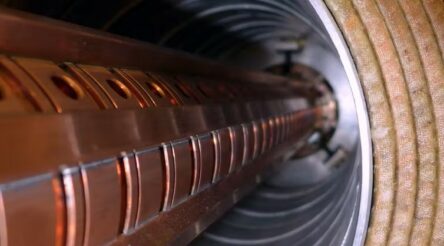Doxall and Next Science are two new Australian anti-microbial chemistries

By Peter Roberts
Microbial resistance to antibiotics and sanitising agents is on everyone's mind in recent times, with resistant strains already in the news even before Covid-19 hit.
But two Australian companies, Wintermute Biomedical and Next Science, have been quietly developing genuinely new chemistries that represent potential breakthroughs in halting infections.
Next Science's XPerience No Rinse Antimicrobial Solution, which earlier this week gained Food and Drug Administration approval, is based on the company’s patented Xbio technology which attacks the biofilm that surrounds and protects bacteria.
This makes bacteria more vulnerable to attack by antimicrobials, antibiotics and the body’s natural immune defences.
Next Science is already selling its Bactisure wound wash, BlastX anti-microbial wound gel and has just launched acne creams and gels.
And, in retrospect, I didn't make clear the scientific breakthrough that was behind Wintermute Biomedical's Doxall range of sanitisers that @AuManufacturing revealed earlier this month.
My telling came across as if this was just another brand of hand sanitiser, and no-one in the mainstream media followed up the story.
But Doxall is result of over 10 years of antibacterial research and represents a major scientific advance in cleaning and sanitisation technology, according to Wintermute Biomedical Chairman Dr Tony Peacock.
Tony Peacock is one of the most important figures in recent commercialisation of Australian research – last year he retired after long service as the chief executive of the Cooperative Research Centres Association.
The CRC model of industry/science collaboration has been a big success and Peacock, an agricultural and veterinary scientist and Fellow of the Academy of Technology, Science and Engineering, retains his interest as Chairman of the Pork Research Institute.
Peacock told me that cleaners and sanitisers are generally alcohol, bleach or quaternary ammonium compound-based (QACs).
Each of these has advantages and disadvantages:
- Alcohol is flammable and poisonous
- Bleaches are very hard on many surfaces, degrading surfaces as they clean
- And QACs have been associated with triggering asthma and have serious associated environmental issues. QAC’s have been banned in the EU from body and hand washes.
Peacock said: “Cleaning and sanitation products are not really an area of great innovation.
“There is lots of marketing claims and angles like that, but we’ve developed real, new intellectual property that we want to see go to the world.”
Wintermute's Doxall's anti-microbial activity comes from a combination of a fatty acid found in coconut oil and an amino acid found in pumpkin seeds, and works in a way I don't yet fully understand.
Doxall hand sanitiser, surface sanitiser and surface disinfectant are safe, non-flammable and contain no harmful chemicals.
Peacock said: “To me, our biggest attraction in the market will be that Doxall effectively sets up an active sanitising surface and keeps on killing bugs on surfaces cleaned with it.
“A few of the QACs make this claim, but frankly, I don’t want a environmental hazard sticking to my surfaces.”
So Wintermute and Doxall deserve more attention than they have received.
Meanwhile, not one to let grass grow under his feet, Peacock is working on his next project – he is bid Chairman at a proposed CRC for Economic Participation of Indigenous communities.
Another great cause.
Picture: Tony Peacock
Subscribe to our free @AuManufacturing newsletter here.
@aumanufacturing Sections
Analysis and Commentary Awards casino reviews Defence Gambling Manufacturing News Online Casino Podcast Technology Videos





